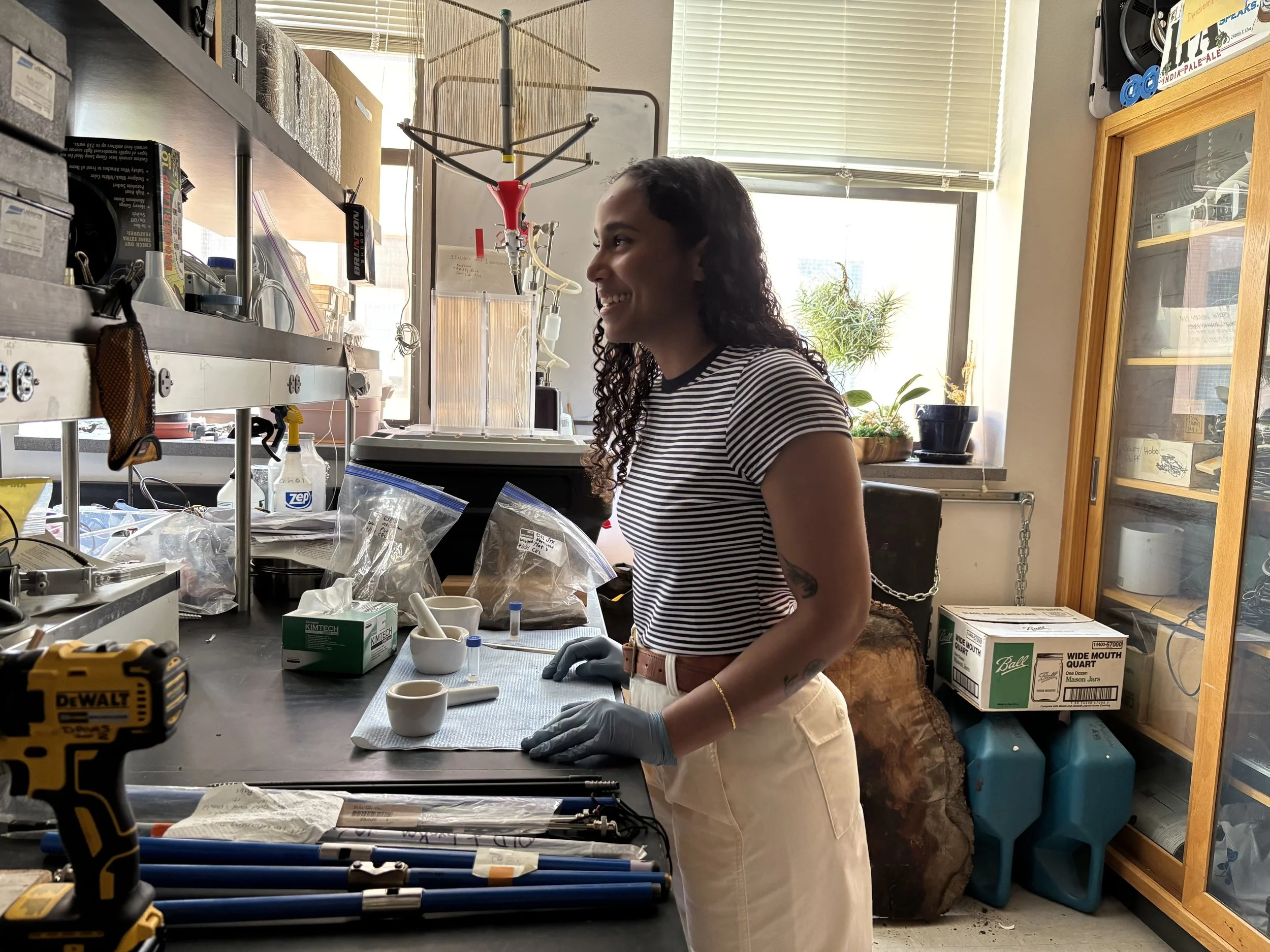A note on opening up.
Dr. Suzanne Pierre working to prepare soil samples for analysis at UC Berkeley.
I know it hasn’t been an easy year at all. For many of us, this year revealed that the core fears we have about the soul of the United States are not unfounded anxieties, but are real and have been activated. On our screens and in our streets, state-sanctioned violence robs people of their dignity, rights, lives, and ancestral lands. Those who are not abducted, silenced, and surveilled are often left feeling helpless, seeking out what little we can do, collectively, to safeguard more vulnerable targets.
I have wanted to be a more vocal leader, using this nonprofit, the Critical Ecology Lab, and my position as a scientist, to be a greater force for grounded hope and ambitious strategy. But that’s not how this year turned out. Instead of connecting more with our community, I turned inwards. I focused on our programs, research, and fundraising, but never felt that these things were perfect enough to share. So the newsletters were never sent, the social media posts stayed in drafts, and the essays remained unpublished. Ultimately, the fear of not being seen as a serious, polished research organization kept me from sharing the real work we were doing all year. “Who wants to see this if it’s not perfect?” was the question I asked myself every month.
But while I sat on our team’s accomplishments and held back my thoughts for fear of not being the “right expert”, things have gotten worse. At the current UN COP30 meetings, yet another batch of negotiations will be held without arriving on binding commitments, and the Indigenous Pavillion will remain on the outskirts again, a performative afterthought over an hour away from the center of decision making. Data centers will consume billions of gallons of fresh water while communities fight to maintain access to clean safe drinking water and to keep their farms running on irrigation, all so that “agents” can enable an unprecedented level of “productivity”. Black and brown communities here in the U.S. and around the world will continue to absorb the torrential storms directly worsened by climate change like it’s normal. No one is coming to our rescue.
So my reflection on the past nine months is this: people like me, playing it small and safe, is exactly why we have not seen a decline in emissions or warming in the past three decades. The basic science is clear, the contemporary perpetrators have been identified, and the cost in lives and dollars has been counted. The missing piece is the confidence and heart of oppressed people. The belief and audacity, coupled with knowledge and expertise, that can shift us from asking leaders for their attention to seizing the world’s attention with evidence and action, and becoming the leaders we need.
Over the next few weeks, I am going to share everything we have done this year, and even in previous years, here at the Critical Ecology Lab. And further, I am going to share where we are going, in detail, and without tempering the vision. In return, I am going to ask that you, as a reader, do something small in return. Help us reach more learners, leaders, funders, and institutions, who should know exactly what we’re doing here, and how critical ecology can shape the world we ought to have. Forward my letters to anyone who you think will find them interesting, clarifying, inspiring, or even provocative. Help us by building the most important thing any organization, or movement, can have: a broad, connected network of committed people.
As I decompose the learned limitations that have kept my ambitions for CEL’s work quiet and small, I invite you to do the same. What ambitions have you put off because they seem unrealistic, or because cynicism has crept in, or because someone else seems to have done it better? What low expectations have seeped into your consciousness, limiting how widely and creatively you think about solving problems? What thinking around what is possible, and who looks like a leader, do you need to destroy, and replace with something bright and brave?
Thank you to those who have donated month after month, and shared our work and story. If you would like to start seeding a sustainable and capable Critical Ecology Lab, you can donate here.
More soon xx
Dr. Sue Pierre
Founder, Critical Ecology Lab

